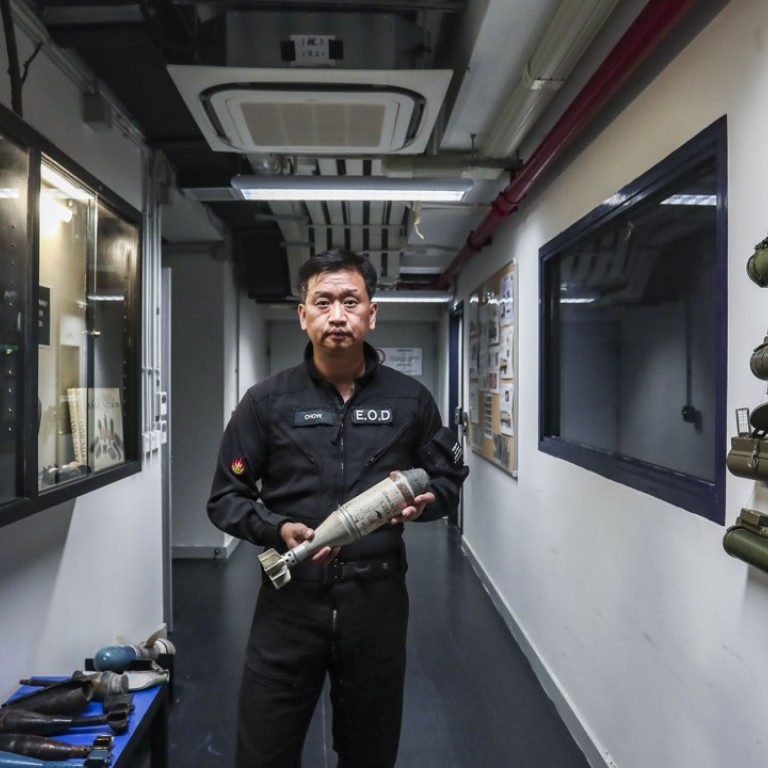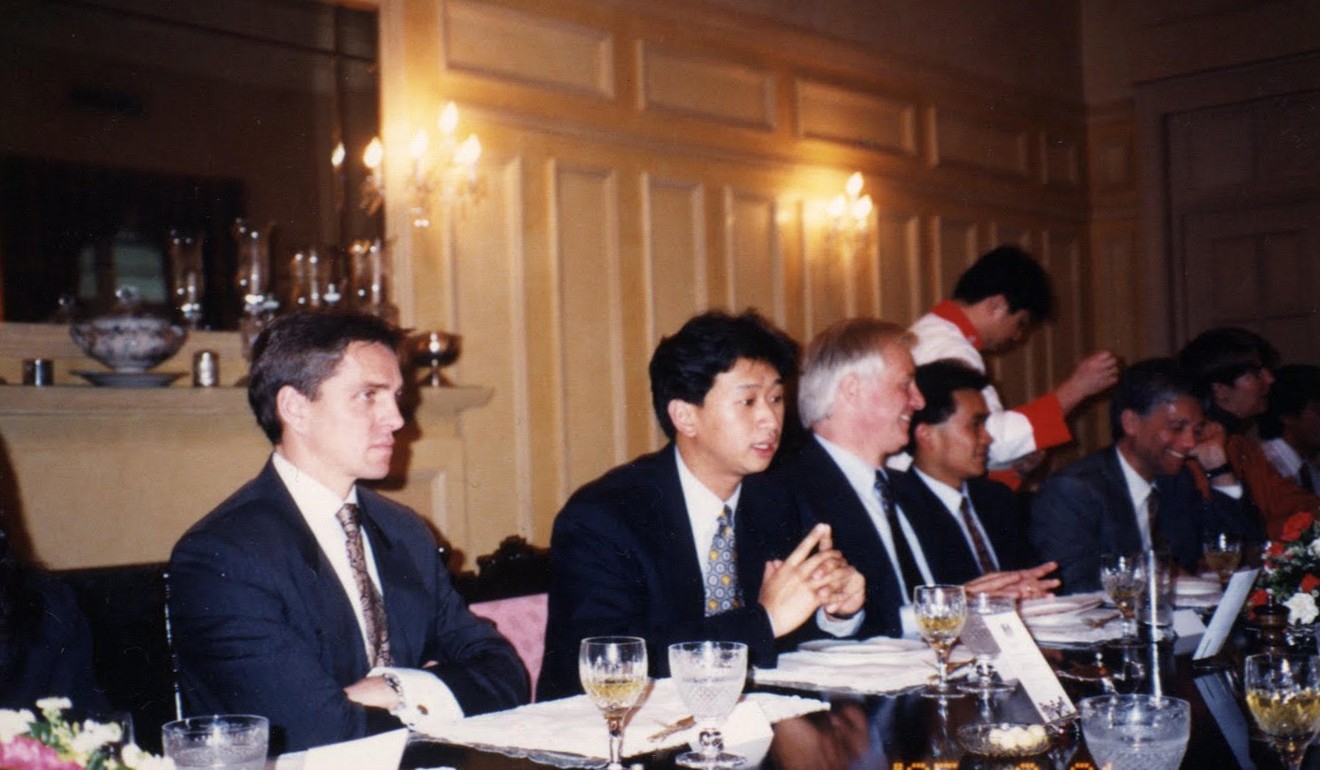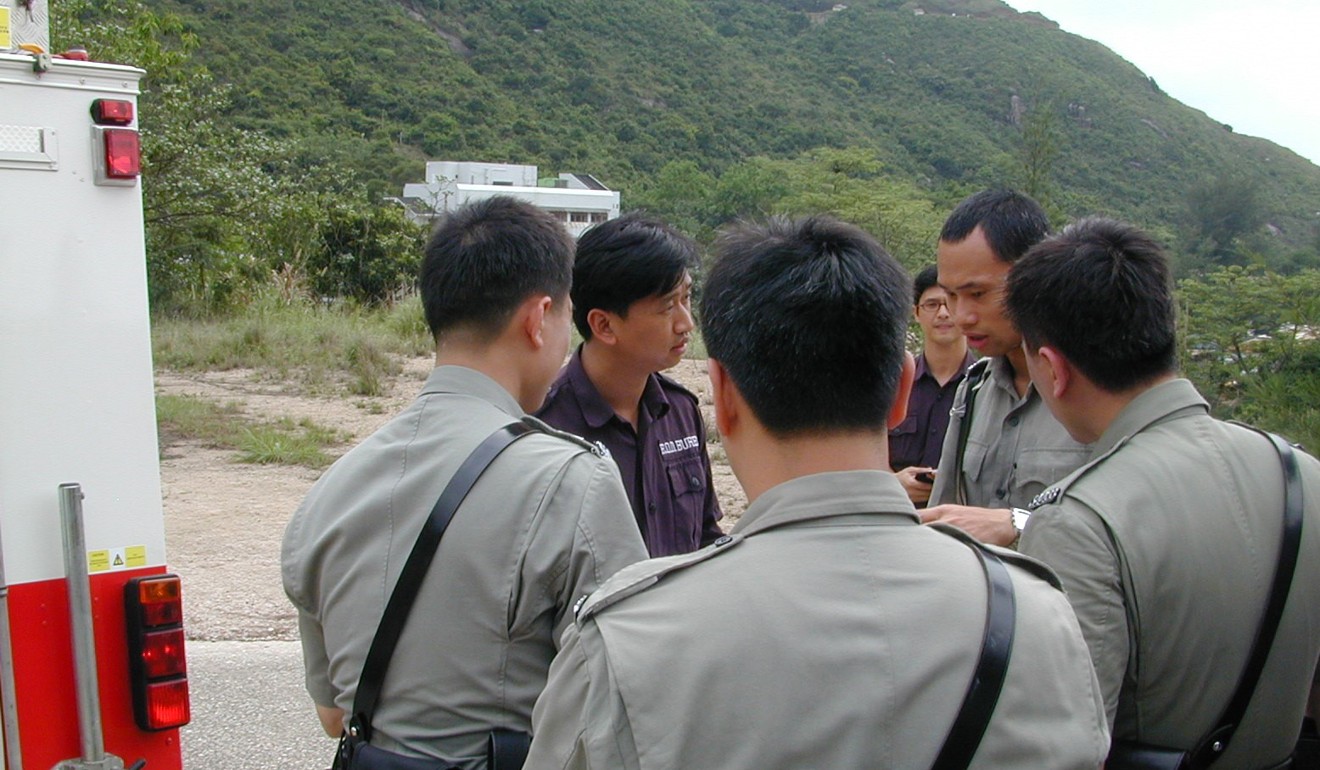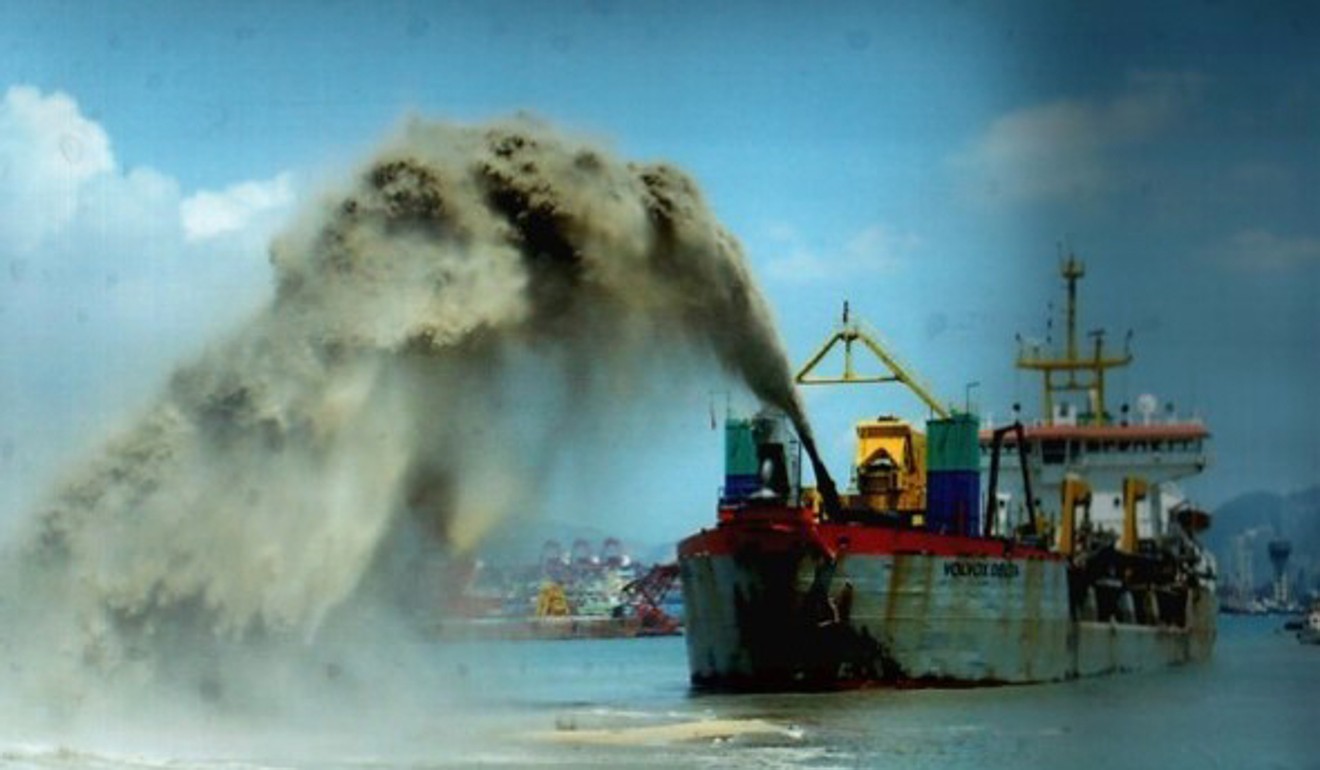
Meet the bomb squad chief who has protected Hong Kong from more than 300 explosives
Ready to retire after 30 unforgettable years with police force helping protect city, senior superintendent believes not in luck but discipline
From serving as a personal bodyguard for Hong Kong’s last British governor to overseeing the city’s bomb squad to protect it from more than 300 explosives, Tony Chow Shek-kin is no stranger to danger.
“Everyone’s afraid of death,” the 54-year-old outgoing head of the Explosive Ordnance Disposal (EOD) Bureau told the Post, dressed in the EOD’s classic black jumpsuit at the base of Jardine’s Lookout. “But I think it’s about how you eliminate the danger. If we don’t do it, who will?”
Retiring next March after 30 years with the police force, the long-time safety specialist does not believe in luck. And he said mistakes can creep in when fear takes over, leaving no second chance. The experience is rather unlike the one portrayed by award-winning singer and actor Andy Lau Tak-wah, who played a charming bomb disposal officer in the 2017 action film Shock Wave. Chow helped Lau learn about EOD work for the film.
In Chow’s experience, defusing a bomb while wearing a 65lb protective suit is not as glamorous as Lau made it seem. In fact, it’s far dirtier, the senior superintendent said with a laugh.
New Mercedes armoured trucks to boost bomb disposal squad
“Andy Lau is prettier than we are,” he quipped. “In the movie, officers go in there, spend five minutes on the bomb, then walk away very quickly as heroes. In real life, we have to be there for quite a long time. There’s no second take. If we make a mistake, we die.”
“Luck is for winning the Mark Six,” he added. “If you believe in luck and in God, you’re never going to survive. You have to know what you’re doing. There’s no second-guessing.”

Joining the force in 1988 after receiving a degree in civil engineering in Britain, the avowed lover of challenges soon worked part-time in the bomb disposal cadre and received training to serve Hong Kong’s last British governor, Chris Patten, in 1994 as a bodyguard, a role better known in Hong Kong as a G4.
Perhaps ironically, his most memorable moment with the ex-governor was not life-threatening.
It involved an outing in Tuen Mun. Patten changed course from a planned itinerary and decided to go to a shopping centre, Chow recalled.

“I wasn’t aware where he was going and was running around looking for him.
“The reporters were following me because they’d lost Patten as well. Eventually, we learned he had gone to the toilet. He hadn’t been lost after all. For me, that was interesting.”
Chow described his former boss as “very intelligent” and not keeping to established travel routes as other government officials did. Patten’s approach made Chow think on his feet.
A year later, the two parted ways when a different professional opportunity arose for Chow: a vacant full-time position with the EOD. In the role, he needed to adopt a new way of thinking, he said. While responding rapidly is crucial for a G4, it is not always ideal when confronted with an explosive device.
“We need to slow our thinking down and come up with different options, then come up with the best one,” Chow explained. “It is never straightforward. That’s what interested me the most.”
Having successfully handled more than 300 explosive ordnance, the senior superintendent reiterated that he had no time to think about danger when on a mission. Absolute focus on the explosive is vital, he added.

“I put my foot on the sand, not realising it was quicksand,” Chow recalled of the evening operation, complicated by working in darkness.
I cry when I lose a football match, not because of a bomb disposal
“I got really scared because the more I struggled, the more I went down.”
Nobody was there to help him because only one person is dispatched for EOD operations, a scenario known as a “one-arm risk”.
Yet behind the bomb suit, Chow is just like any other family man. He said he made a point of not bringing his work stress home to his wife and son. Nor did he study war bombs in his private time. Instead, he expressed a fondness for discussing food and movies with his family, and enjoying life.
“My wife was not happy that I was doing bomb disposal,” he admitted of the early days when the two were dating. “As time went by, she just accepted it.”
Chow said he doesn’t tell his family about what happened on the job “unless they see me on television”. Curiously, he noted his stressful work does not make him emotional, saying: “I cry when I lose a football match, not because of a bomb disposal.”
Asked about the key to success, the veteran specialist with a unique career trajectory recalled a bit of wisdom Patten gave him.
“Discipline,” Chow said. “It doesn’t matter what you do, even getting up at a certain time, doing exercise, reading, or whatever, you need to discipline yourself. This is something that I’ve applied throughout my career.”

